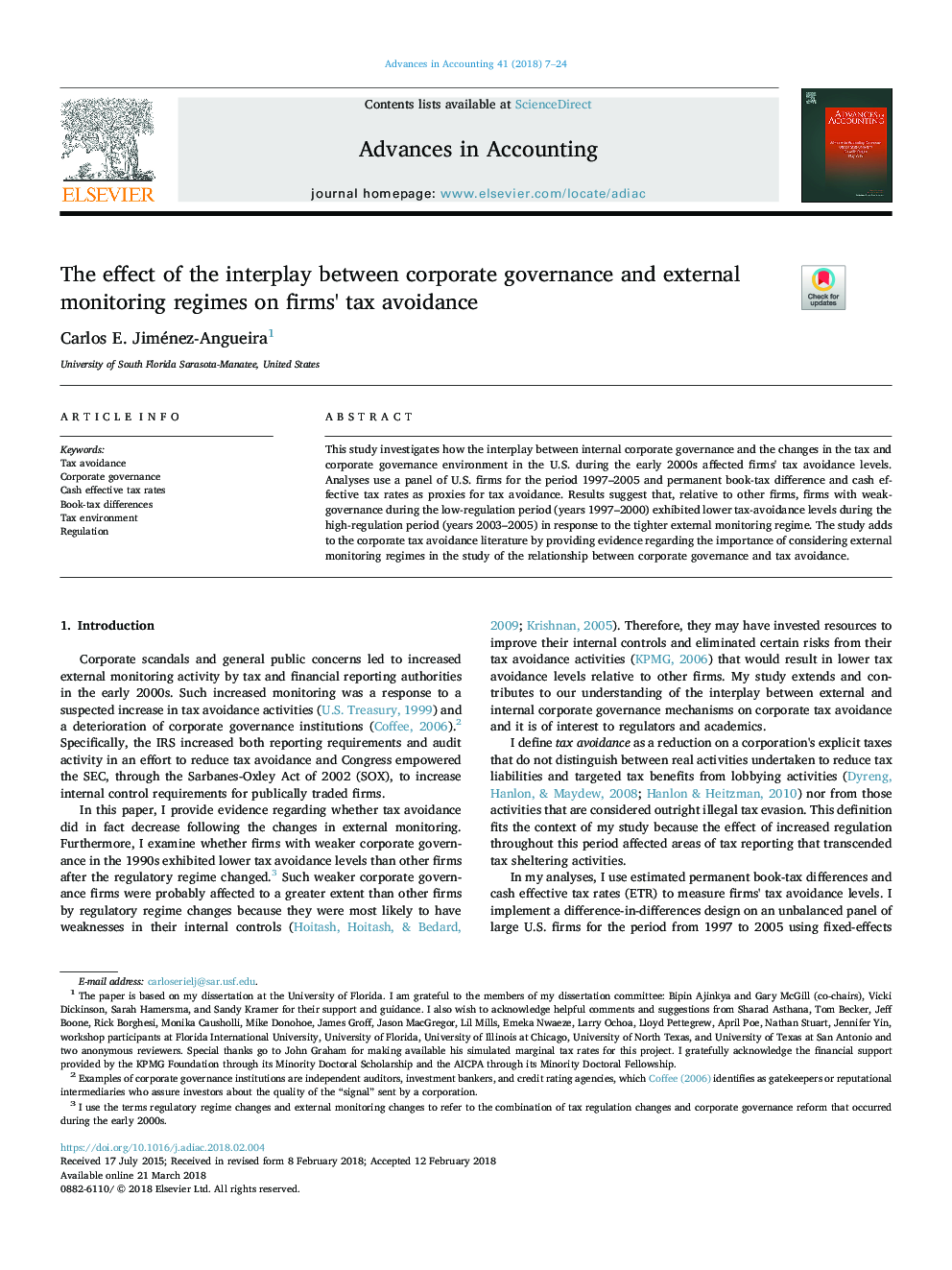| Article ID | Journal | Published Year | Pages | File Type |
|---|---|---|---|---|
| 7339464 | Advances in Accounting | 2018 | 18 Pages |
Abstract
This study investigates how the interplay between internal corporate governance and the changes in the tax and corporate governance environment in the U.S. during the early 2000s affected firms' tax avoidance levels. Analyses use a panel of U.S. firms for the period 1997-2005 and permanent book-tax difference and cash effective tax rates as proxies for tax avoidance. Results suggest that, relative to other firms, firms with weak-governance during the low-regulation period (years 1997-2000) exhibited lower tax-avoidance levels during the high-regulation period (years 2003-2005) in response to the tighter external monitoring regime. The study adds to the corporate tax avoidance literature by providing evidence regarding the importance of considering external monitoring regimes in the study of the relationship between corporate governance and tax avoidance.
Related Topics
Social Sciences and Humanities
Business, Management and Accounting
Accounting
Authors
Carlos E. Jiménez-Angueira,
